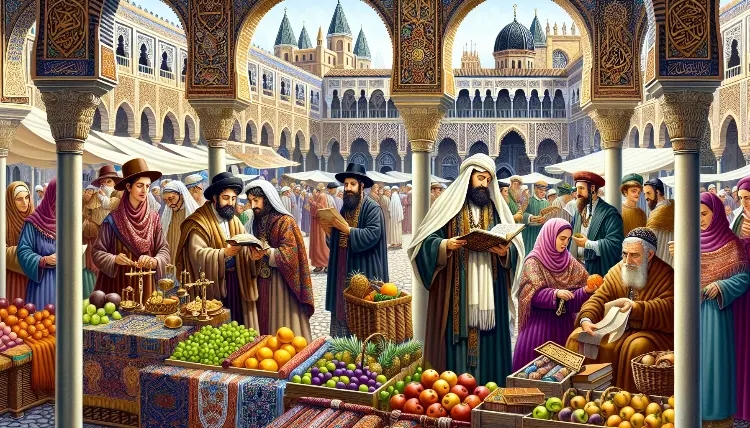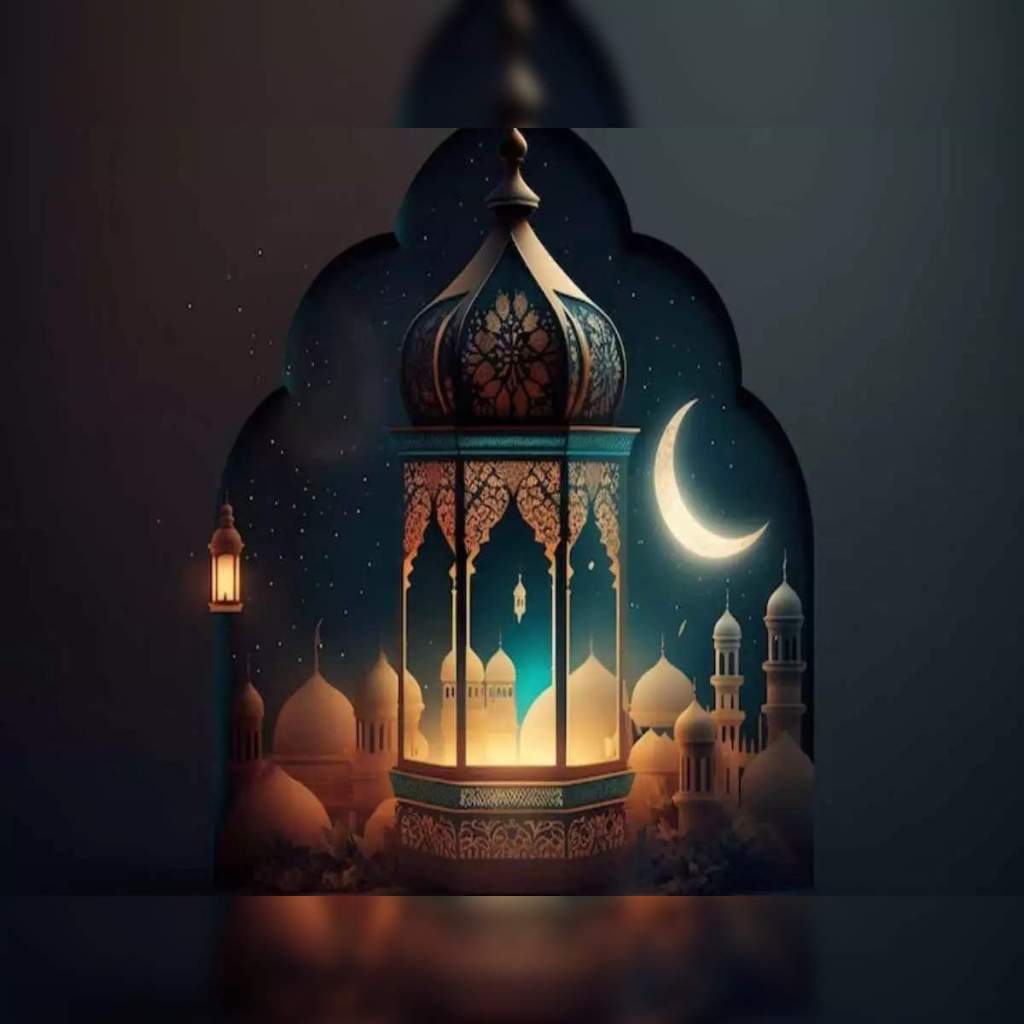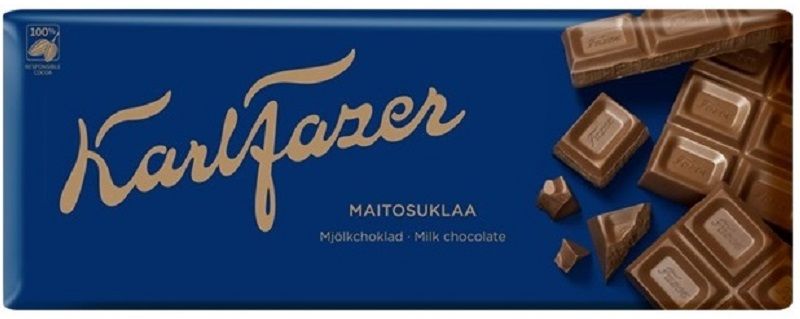Two years ago, I wrote about the fascinating history of Al-Andalus and the legacy it should have left in modern-day European societies. Back almost a millennium ago, we had a place where Muslims, Christians, and Jews coexisted in relative harmony for centuries. This unique society fostered a golden age of art, science, and philosophy, leaving a lasting impact on European culture. But when looking at the newspapers lately, little did I know how relevant that topic would become in light of the recent European Parliament elections. Again.

The rise of far-right parties across the continent, with their platforms of intolerance and exclusion, is a cold and chilling reminder of the dangers of repeating history’s mistakes. But as I delved deeper into the story of Al-Andalus in these past few years due to my literary work, I realized that it offers a powerful counter-narrative, a glimpse of what’s possible when we choose unity over division.

A Surprising Harmony
Today, we often associate the Middle Ages with conflict and intolerance. But life in Al-Andalus was a stark contrast to that stereotype. Muslims, Christians, and Jews not only coexisted under Islamic rule but thrived in a vibrant multicultural society. Each group contributed their unique skills and knowledge to the region’s prosperity. For instance, the Jewish community’s expertise in craftsmanship, particularly with precious metals, was highly valued. Far from being forced to convert, they were protected under Islamic law and allowed to maintain their own distinct communities, practicing their faith and traditions freely. This atmosphere of religious tolerance and cultural exchange was a far cry from the persecution and expulsion that Jewish communities often faced elsewhere in Europe at the time. It’s estimated that at one point, the population was 80% Muslim, 15% Christian, and 5% Jewish, a testament to the inclusivity of Al-Andalus.

This atmosphere of coexistence wasn’t just about tolerance; it fostered a remarkable period of intellectual and cultural exchange. In cities like Córdoba, Granada, and Toledo, scholars from diverse backgrounds collaborated in libraries and universities, translating ancient texts and advancing fields like medicine, astronomy, and mathematics. Muslim, Christian, and Jewish philosophers engaged in lively debates, pushing the boundaries of knowledge. The reach of this intellectual exchange extended far beyond the borders of Al-Andalus. For instance, during restorations of early medieval churches in England in the 1990s, Arabic numerals were discovered, suggesting that craftsmen had travelled from Al-Andalus to share their knowledge and expertise. This spirit of collaboration and innovation laid the groundwork for the European Renaissance, as many of the texts and ideas preserved in Al-Andalus eventually made their way back to other parts of Europe, sparking a new era of learning and discovery.

Echoes of the Past in Modern Europe
But what does this have to do with us today? Well, as we grapple with rising intolerance and xenophobia in Europe, perhaps we can learn something from Al-Andalus. The growing restrictions on religious expression, from mosque registrations to headscarf bans, raise questions about whether we’re truly upholding the values of equality and freedom we claim to cherish. In France, for example, the banning of headscarves and hijabs while allowing nuns to cover their heads raises questions about religious freedom and potential discrimination. Furthermore, the persistent scrutiny and speculation surrounding the French First Lady’s gender identity, while seemingly unrelated, highlight a broader societal discomfort with openly acknowledging and accepting differences in gender expression. The topic of one’s gender, of course, is their own, but in a society that values itself to be open, and a strong advocate of human rights, wouldn’t it be expected for a public figure, such as she is, to show support for the LGBTQ community and their rights? These instances, while seemingly disparate, point to a troubling trend of intolerance towards the difference in modern Europe.

It’s easy to assume that in the times of Al-Andalus, concepts like human rights, especially LGBTQ rights, were unheard of. Yet, the reality might surprise you. Al-Andalus, an Islamic caliphate, was remarkably tolerant. And according to documented history, the level of tolerance extended even to those in positions of power. Notably, one of the rulers, Abd ar-Rahman III, was openly gay and at the same time much loved by his people, a fact well-documented and accepted within his court and society.
This tolerance was evident in the reign of Abd ar-Rahman III, whose era is considered a golden age for Al-Andalus, marked by political stability, economic prosperity, and cultural flourishing. He invested in infrastructure, built impressive palaces and gardens (like Medina Azahara), and fostered advancements in science and the arts. While he faced some internal rebellions and external conflicts, his rule was largely successful and contributed to the positive image of Al-Andalus in history.

There are accounts of his generosity, charisma, and patronage of the arts and sciences. His open sexuality, while not universally celebrated, was not a cause for widespread condemnation or unrest, demonstrating a level of tolerance uncommon in many societies of that era. This flourishing period stands in stark contrast to the discrimination faced by LGBTQ+ individuals in some parts of Europe today, further highlighting the progressive nature of Al-Andalus for its time.
So what led to the erosion of these progressive values over time?

Looking at the modern tapestry of countries that the European continent has, it feels like we have become the very echo of the prejudices and exclusions that Al-Andalus sought to overcome.
Remember the Brexit vote, driven by a desire for independence and a return to traditional values? Instead of the promised benefits, it has led to borders, trade barriers, isolation, and exacerbated societal issues like poverty, a struggling healthcare system, and rising living costs. Hardly the outcome that was painted by the Brexiteers at the time.

The recent surge of right-wing parties in the European Parliament fills me with a deep sense of unease. Their rhetoric of intolerance and xenophobia echoes the dangerous nationalism of the 1920s and 1930s that paved the way for Hitler’s rise. As an LGBTQ man married to a Southeast Asian, this chilling echo sometimes feels like a direct threat to my family and me. Recent stabbings in Finland have left even me, a native Finn, feeling unsafe. If anything, the current political culture acts as a stark reminder that the lessons of history are too easily forgotten, and that the progress we’ve made towards equality is fragile. As a very much pro-European Union European, it makes me fear for the future of a diverse and inclusive Europe, a place where everyone, regardless of their background or identity, can feel safe and valued, and where the core values of the EU – respect for human dignity, freedom, democracy, equality, the rule of law, and human rights – are upheld.

For me, it is great that we have an Islamic Caliphate in our history, as Al-Andalus shows us that diversity and collaboration can lead to great achievements. After all, the Renaissance, often considered a turning point in European history, was heavily influenced by the knowledge and culture preserved in Al-Andalus.
Are We Repeating History’s Mistakes?
Sadly, the end of Al-Andalus in 1492 marked the beginning of the Spanish Inquisition, with forced conversions and expulsions of Jews and Muslims, a chilling prelude to the horrors of the 20th century’s Holocaust. One can’t help but wonder, with such a recurring pattern of intolerance throughout history, is there perhaps a dormant strain of bigotry embedded in the European gene pool, ready to resurface when triggered by fear or political maneuvering? Could it be that we are so insecure in our own identities that we feel threatened by anything different, like a Muslim saying “astaghfirullah!” upon hearing someone visited a church? Is the fear of the unfamiliar so ingrained in our collective psyche that it continually drives us to repeat the mistakes of the past time and time again?

These troubling parallels force us to confront an uncomfortable question: are we heading down a similar path of intolerance and division? Are we so consumed by our differences – be they religious, cultural, or political – that we forget the value of unity and diversity? The legacy of Al-Andalus serves as a powerful reminder that when we embrace tolerance and cooperation, we can create something truly extraordinary. This stands in stark contrast to the rise of intolerance and xenophobia we are witnessing in some parts of Europe today. But if we succumb to fear and prejudice, we risk repeating the mistakes of the past, with potentially devastating consequences.

Yet, not all hope is lost. Spain, for instance, seems to have learned from its past mistakes. Andalusia, the region that still bears the echo of Al-Andalus in its name, is home to a thriving Muslim community. The architectural marvels of the Alhambra and the Mezquita in Córdoba stand as testaments to the region’s rich Islamic heritage, attracting visitors from around the world and fostering cross-cultural understanding. Even the vibrant flamenco tradition, with its intricate footwork and passionate melodies, carries traces of Moorish influence. As a testament to this cultural acceptance, Granada, the last city to fall during the Reconquista in 1492, became the first Spanish city to have a purpose-built mosque since that time, inaugurated in 2003.

It is my fervent wish that we, as Europeans and people living in different countries across this continent, would understand the profound importance of history in shaping a better future. We must not only learn from the past but also hold our politicians accountable when they try to undermine the vision of a more tolerant, inclusive, and harmonious society. The legacy of Al-Andalus, a nation that spanned eight centuries, serves as a beacon of hope, reminding us that even amidst the darkest chapters of history, the seeds of progress and understanding can take root and flourish.
In the modern world, it is easy to fall prey to the most loud and belligerent people who, usually, advocate for the most intolerant and xenophobic opinions. So it falls on us to not allow those opinions to take hold, but instead nurture the seeds of acceptance and tolerance in the face of resurgent intolerance. It is on us to teach and to show that diversity is not a threat but a strength, just like it was in Al-Andalus.

If you’ve enjoyed reading this reflection and would like to support my work, consider Buying Me A Coffee, thanks! That would be much appreciated as it allows me to fulfil my passion to write.
With much love,
Khalil







Leave a comment